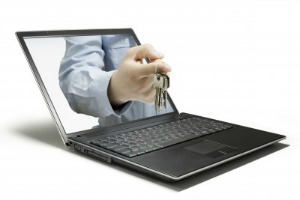Home Network Security Tips

It seems that everyone's home is wired to the internet these days. While the internet can be a convenient resource for information, entertainment, and communication, you need to be careful that your network is not hijacked by hackers.
Many an unwitting browser has had their bank codes or other personal information stolen because they did not take appropriate precautions. Here are some good home network security tips.
Install a Firewall
First of all, consider installing a dedicated firewall. While most computers have firewall software that comes with the operating system or that can be downloaded from another source, you should consider a separate computer that only is running firewall software, because as computers run more programs at the same time, they become vulnerable.
And if you are watching the Snowden scandal you might wonder if the NSA has partnered with proprietary operating systems such as Windows to install back doors in the software which could also be used by hackers to get in to your computer.
Use an Old Computer
If you do have a really old computer lying around, and install an extra network card, you can install a dedicated firewall operating system like Smoothwall.
This particular distribution has been configured with a user friendly interface for non-Linux users, so just follow the instructions and the default settings. Plug one outlet to your DSL or cable modem and the other into your wireless router.
Then this should
protect your network much better than a Windows Firewall will. And it's a big step in your home network security plan.
Be Well Encrypted

The next important thing to remember in terms of home network security is to have your wireless internet well encrypted. This can be set through your router interface.
Make sure that you are not using WEP encryption, as that is readily hackable. Use the WPA standard instead. Also make sure the passcode is a completely random series of characters, otherwise a hacker might be able to guess it.
One very important consideration is to have a master password vault such as KeyPassX to randomly generate and store passwords for any sites you visit. The easiest way that hackers break into computers is by guessing common passwords.
Additionally some people tend to use the same password for a lot of different sites, so if a rouge employee at one site gets it, he can get into many different accounts. With a password storage program, you only have to remember one passcode that encrypts all your random pass codes, and this passcode is never used online.
It is also imperative that you install anti-Virus and anti-Spyware software on all over your computers. This is particularly true if you have a Windows computer (although it is a myth that Macs cannot get Viruses, they are just not as big of a target).
If you browse
the internet, consider using a browser such as Firefox or Chrome where you can
also install several security and privacy plugins such as NoScript, Add Block
Plus, and Ghostery to help protect your personal data and your personal network security.
Don’t Open Email Attachments
The final major recommendation is never open an email attachment if you do not know who sent it and what it is.
Home Network Security is something that everyone who uses the internet should give serious consideration to. It does not take long to set up various precautions, and once you have integrated them into your system, you can spend a lot less time worrying about someone stealing your data.
Related Articles to Home Automation
Home Automation and SmartThings
Home Computer Security - Is Yours Fully Secured?
Digital Home Security Systems: Welcome to the Digital Life
Do Home Security Systems Reduce the Crime Rate?
We Hope Our Website Is Helpful to You
Would you like to know how we are building this website?
Have you ever thought about building your own website and making some money from it?
Would you like to learn more?
Check this out! Work From Home
Please Stay Safe!

We Care!
